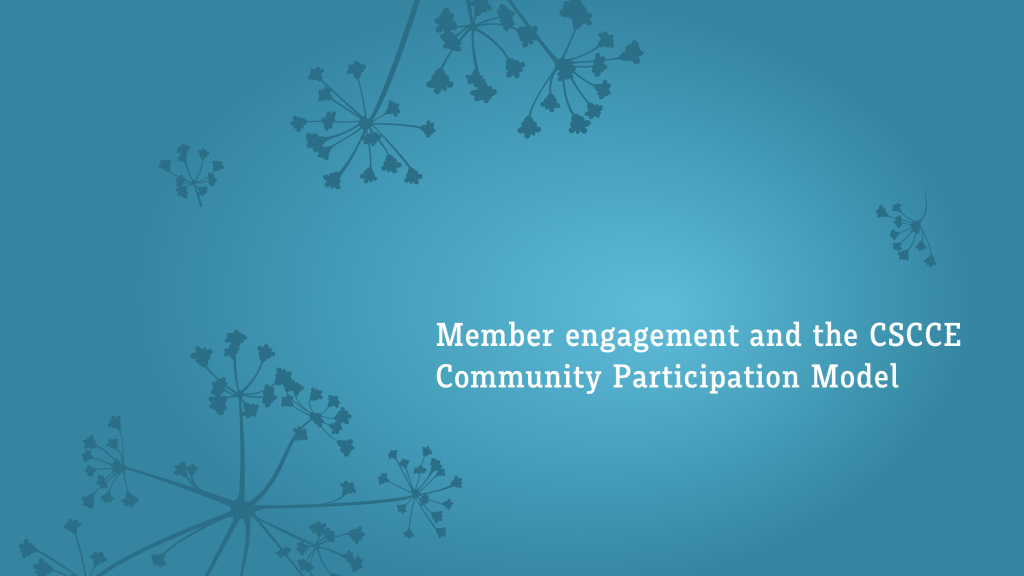Our August 2020 community call coincided with the release of the CSCCE Community Participation Model, a cornerstone of our Community Engagement Fellowship Program training but until now not publicly available. To celebrate, we invited two CEFP alumni to share their experiences using the model to inform how they think about, and engage, the members of their communities.
In this blog post, we’ll recap a few takeaways from the call, and we share each of the presentations as standalone videos for you to watch at your convenience. Plus, we share what we’re cooking up for next month’s call!
The CSCCE Community Participation Model
Lou Woodley introduces the CSCCE Community Participation Model.
Continue reading “August Community Call Recap: Meeting members where they are to build a successful scientific community”